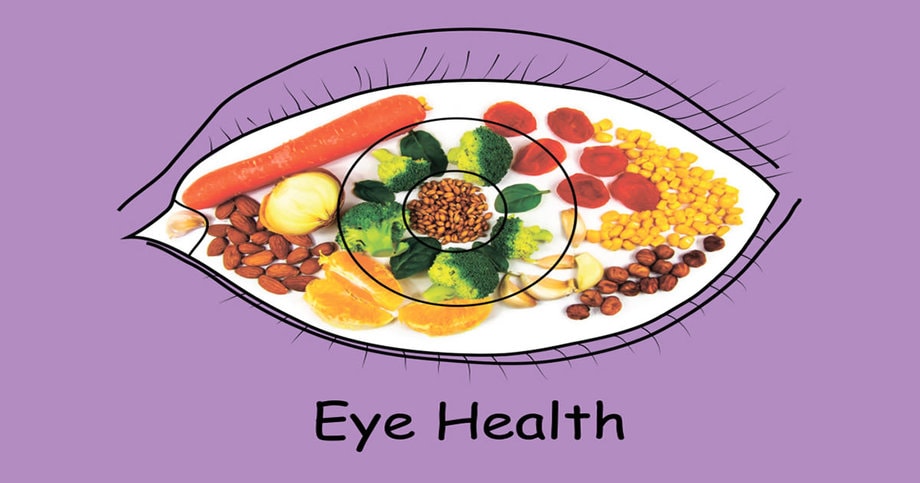Can Diet and Nutrition Impact Eye Health

This article aims to explore the potential impact of diet and nutrition on eye health. It will examine the importance of maintaining a healthy diet for optimal eye health and identify specific nutrients that promote good vision.
Moreover, it will provide a list of foods that should be included in an eye-healthy diet and discuss lifestyle habits that support optimal eye health.
By presenting evidence-based information, this article seeks to inform readers about the potential benefits of dietary choices in maintaining and improving eye health.
Key Takeaways
- Omega-3 fatty acids are crucial for visual development and protection against AMD and dry eye syndrome.
- Antioxidants play a crucial role in protecting eyes from oxidative stress and free radicals, reducing the risk of cataracts and AMD.
- Consuming fruits, vegetables, and leafy greens rich in antioxidants supports overall eye health.
- Lifestyle habits such as regular exercise, adequate sleep, wearing sunglasses, and taking breaks from screen time can support optimal eye health and mitigate the negative effects of screen use.
The Importance of a Healthy Diet for Eye Health
The relationship between diet and nutrition and its impact on eye health has been widely studied and recognized.
One important aspect of a healthy diet for maintaining good eye health is the consumption of omega-3 fatty acids. Omega-3s are a type of polyunsaturated fat that are found in high levels in the retina and play a vital role in visual development and function. They have been shown to help protect against age-related macular degeneration (AMD) and dry eye syndrome.
Additionally, antioxidants also play a crucial role in maintaining good vision. These compounds help to protect the eyes from oxidative stress, which can lead to the development of various eye conditions, including cataracts and AMD.
Foods rich in antioxidants, such as fruits, vegetables, and leafy greens, should be incorporated into the diet to support overall eye health.
Nutrients That Promote Good Eye Health
Certain essential nutrients play a crucial role in maintaining optimal functioning of the visual system. Nutritional supplements for eye health can provide these essential nutrients in concentrated forms to support overall eye health.
The role of antioxidants in maintaining good eye health is particularly important, as they help protect the eyes from oxidative stress and damage caused by harmful free radicals.
Some key nutrients that promote good eye health include:
- Vitamin A: Essential for the production of rhodopsin, a pigment in the retina that helps with low-light vision.
- Lutein and Zeaxanthin: These antioxidants help filter harmful blue light and reduce the risk of age-related macular degeneration.
- Omega-3 Fatty Acids: These fats are important for maintaining the health of the retina and reducing the risk of dry eyes.
- Vitamin C: This antioxidant helps protect the eyes against damage caused by free radicals.
- Vitamin E: Another antioxidant that helps reduce the risk of age-related macular degeneration.
Incorporating these nutrients into one’s diet or taking nutritional supplements can significantly contribute to maintaining good eye health.
Foods to Include in Your Eye-Healthy Diet
Including a variety of fruits and vegetables rich in essential nutrients can support the maintenance of optimal eye function.
These eye-healthy superfoods include leafy green vegetables such as spinach, kale, and collard greens, which are rich in lutein and zeaxanthin. These carotenoids have been shown to reduce the risk of chronic eye diseases such as age-related macular degeneration and cataracts.
Other fruits and vegetables such as oranges, strawberries, and bell peppers provide vitamin C, which is essential for healthy blood vessels in the eyes.
Additionally, incorporating nutritional supplements for vision can also be beneficial. Omega-3 fatty acids, found in fish oil supplements, have been linked to a reduced risk of dry eye syndrome and age-related macular degeneration. Vitamin E and zinc supplements have also shown potential in preventing age-related eye diseases.
Overall, a balanced diet consisting of these eye-healthy superfoods and nutritional supplements can contribute to optimal eye health.
Lifestyle Habits That Support Optimal Eye Health
Lifestyle habits such as regular exercise, adequate sleep, and proper eye protection can contribute to the maintenance of optimal visual function. These habits not only promote overall health but also have specific benefits for eye health.
Exercise, for instance, improves blood circulation to the eyes, supplying them with essential nutrients and oxygen. Furthermore, regular physical activity can help reduce the risk of eye conditions such as glaucoma and age-related macular degeneration.
Adequate sleep allows the eyes to rest and repair, preventing strain and fatigue.
Wearing appropriate eye protection, such as sunglasses with UV protection, shields the eyes from harmful ultraviolet rays. Additionally, taking breaks from prolonged screen time and practicing eye exercises can help alleviate digital eye strain.
Emphasizing these lifestyle habits can support optimal eye health and mitigate the potential negative effects of screen time.
Building an Eye-Protective Meal Plan
To support optimal eye function, incorporating a variety of nutrient-rich foods into one’s daily meals is recommended. Including eye-friendly recipes and nutritional supplements for eye health can further enhance the protective effects of a balanced diet.
Eye-friendly recipes often feature ingredients rich in vitamins A, C, and E, as well as antioxidants, omega-3 fatty acids, and lutein and zeaxanthin. Examples of such recipes include spinach and kale salads, citrus fruit smoothies, and salmon or tuna dishes.
Additionally, nutritional supplements for eye health can be beneficial, especially for individuals who may have difficulty obtaining sufficient nutrients from their diet alone. Supplements such as vitamin C, vitamin E, zinc, and omega-3 fatty acids have been shown to support eye health and function.
However, it is important to consult with a healthcare professional before starting any supplementation regimen to ensure safety and appropriate dosage.
Frequently Asked Questions
Can Eye Health Be Improved Solely Through Diet and Nutrition, or Are Other Factors Involved?
Eye health is influenced by multiple factors, including diet and nutrition. While diet plays a crucial role in maintaining eye health, it is important to note that other factors such as genetics, environmental factors, and overall lifestyle also contribute to the overall well-being of the eyes. Adequate intake of nutrients, especially antioxidants, has been associated with a reduced risk of certain eye conditions and diseases. Therefore, a balanced diet that includes a variety of fruits, vegetables, whole grains, and lean proteins can potentially improve eye health. However, it is important to consult with a healthcare professional for personalized advice regarding eye health and nutrition.
Are There Any Specific Foods That Should Be Avoided for Optimal Eye Health?
The role of genetics in eye health is a relevant factor to consider when discussing specific foods to avoid for optimal eye health. Further research is needed to determine the impact of these foods on eye health.
How Long Does It Take to See Improvements in Eye Health After Adopting an Eye-Healthy Diet?
The timeline for seeing improvements in eye health after adopting an eye-healthy diet is not well-established. Further research is needed to determine the effectiveness of an eye healthy diet on improving eye health.
Is It Necessary to Take Dietary Supplements for Good Eye Health, or Can It Be Achieved Through Food Alone?
The question of whether dietary supplements or food alone is necessary for good eye health is important. Understanding the role of a balanced diet in promoting eye health is crucial in determining the best approach for maintaining optimal visual function.
Are There Any Lifestyle Habits That Can Negatively Impact Eye Health, Even With a Healthy Diet?
Negative effects on eye health can occur despite maintaining a healthy lifestyle. Certain lifestyle habits, regardless of a healthy diet, can have detrimental impacts on eye health, highlighting the need for comprehensive eye care.








